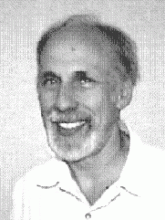What Is It
Ever since John Locke, philosophers have wondered about memory and its connection to the self. Locke believed that a continuity of consciousness and memory establish a "self" over time. Now psychology is weighing in with new research suggesting that the relationship between memory and the self is even more complicated than that. But what's the connection between memory and the self? Can the self be explained strictly in terms of memory? Or might the self be something over and above what memory suggests? John and Ken remember to welcome Stan Klein from UC Santa Barbara, author of The Two Selves: Their Metaphysical Commitments and Functional Independence.
Listening Notes
John and Ken kick off the show by noticing that there is a long tradition in philosophy of exploring the connection between memory and the self. Locke, for example, posited that what makes someone the same person yesterday is that they can remember what they did yesterday. Ken wonders whether Locke left something out. Locke might merely tell us what the self does rather than what it is. John retorts that this way of thinking makes it seem as if the self we’re looking for is some mysterious inner agent. Rather, my self is just me. Having capacity to form “I-thoughts” is all it takes to have a self.
Stan is invited to the discussion. He sides with neither the view that there is some mysterious inner self nor the deflationary one where “my self is just me.” A subjective sense of self is necessary to make sense of the content of memories, but there is also a scientifically quantifiable, objective aspect. There is no single, simple, unified version of self -- no locus in the brain we can hope to discover where the self resides.
John, Ken, and Stan then dig into the nature of the relationship between memory and self. Contra Locke, Stan argues that memory and self can come apart. In schizophrenia and other dementias, someone can have memories but not take them to be their own. On the other hand, Alzheimer’s patients without much remaining memory for events can still have a conviction that Alzheimer’s is happening to them. Spurred by audience questions, our hosts and guest go on to discuss the differences between kinds of memory and how we can understand memory as a function of social evolution.
Stan wraps up the show through a more general reflection on the relationship between philosophy and psychology. He considers them to be siblings who have grown too far apart. On one hand, it’s important to naturalize philosophy by reigning in conceptual possibility with empirical possibility, but on the other, psychologists need to use philosophy to ensure they study concepts rather than mere tasks. The study of memory is a perfect example of an area where philosophy and psychology need to work together to achieve satisfying results.
- Roving Philosophical Reporter (Seek to 6:04): Filmmaker Banker White discusses The Genius of Marian, his upcoming film which documents his mother’s struggle with Alzheimer’s.
- 60-Second Philosopher (Seek to 50:26): Ian Shoales fires off examples of memory in pop culture, from Memento to the Bourne Identity. He then comments on phenomena like selective and cultural amnesia.
